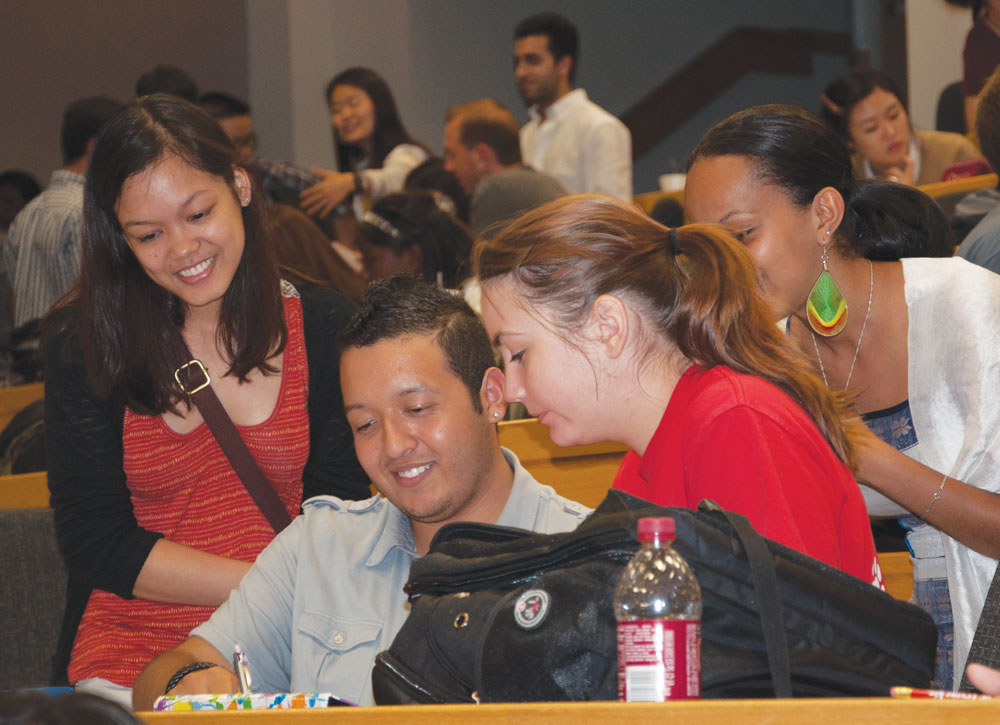

By David Hurtado
There’s an old saying that birds of a feather flock together. Student clubs, whose members share similar interests, are one such example.
The college hosts more than 50 different clubs and organizations for students. Some of these are relatively new on the block, while others have been around for decades.
Mindy Kinnaman, manager, Student Life and Leadership Development, said Student Senate was among the first clubs to be formed at the college.
“[Student Senate] was formed within the first five years of the college’s founding,” Kinnaman said. “No one seems to be quite sure of the exact date.”
Student Senate provides representation for the student body of the college and distributes funds to the various student clubs and organizations on campus. In addition, Student Senate plays a role in policy-making that affects the student body. The smoking ban, approved last year by the Board of Trustees, was first initiated by Student Senate.
According to Kinnaman, the largest club in terms of members is Phi Theta Kappa with more than 600 members. Many of them are not actively involved, however. As an honors society, Phi Theta Kappa does not hold regular meetings. Instead, a leadership board meets and plans activities for members.
Currently the largest club of actively involved students is International Club, which has more than 100 active members. This is the first year the club has boasted such high membership.
Founded in 1985, International Club brings together students from America and around the globe for educational and social activities. It acts as a forum for learning about world cultures and fundraises for scholarships for international students.
David Ellis, the club’s adviser, said he felt the club was able to retain members because of the welcoming atmosphere.
“I think there’s a sense of belonging,” Ellis said. “Our president, Jason, makes you feel that way and the officers make you feel that way. So if you come and you’re brand new, there’s a lot of people who will come talk and visit with you and make you feel they’re glad that you’re here.”
In addition, Ellis said he felt many American students feel a special bond with international students. He said being around them makes you feel comfortable; you do not need to be a special person.
Some of the newer clubs on the block include Secular Student Alliance, Advertising and Public Relations Club and Cult Film Club. These were approved by Student Senate March 19. However, according to Kinnaman, that status is likely to change as five more clubs are awaiting approval.
Cult Film Club began in response to Cineclub, according to Kary Faria da Cunha, president.
“I noticed that there was a movie club on campus and I went and participated with it,” Faria da Cunha said. “With that club, they watch older films, more of your classic movies. There wasn’t any other club that explored avenues more contemporary, that students would be more drawn to. I thought, why not try another movie club?”
Cult films, or cult classics, are defined as films that do not achieve significant box office success, but acquire the following of a small fan base.
“A cult film has of a niche group that follows it, a certain type of individual who is drawn to these kind of films,” Faria da Cunha said. “They explore different realms outside the mainstream cinema, and deal with topics that are more risqué and taboo, making for great humor.”
Students interested in joining an existing club or forming a new one can get more information from the Center for Student Involvement, COM 309. At least 10 students and one adviser are needed to form a club.
Contact David Hurtado, features editor, at [email protected].





















